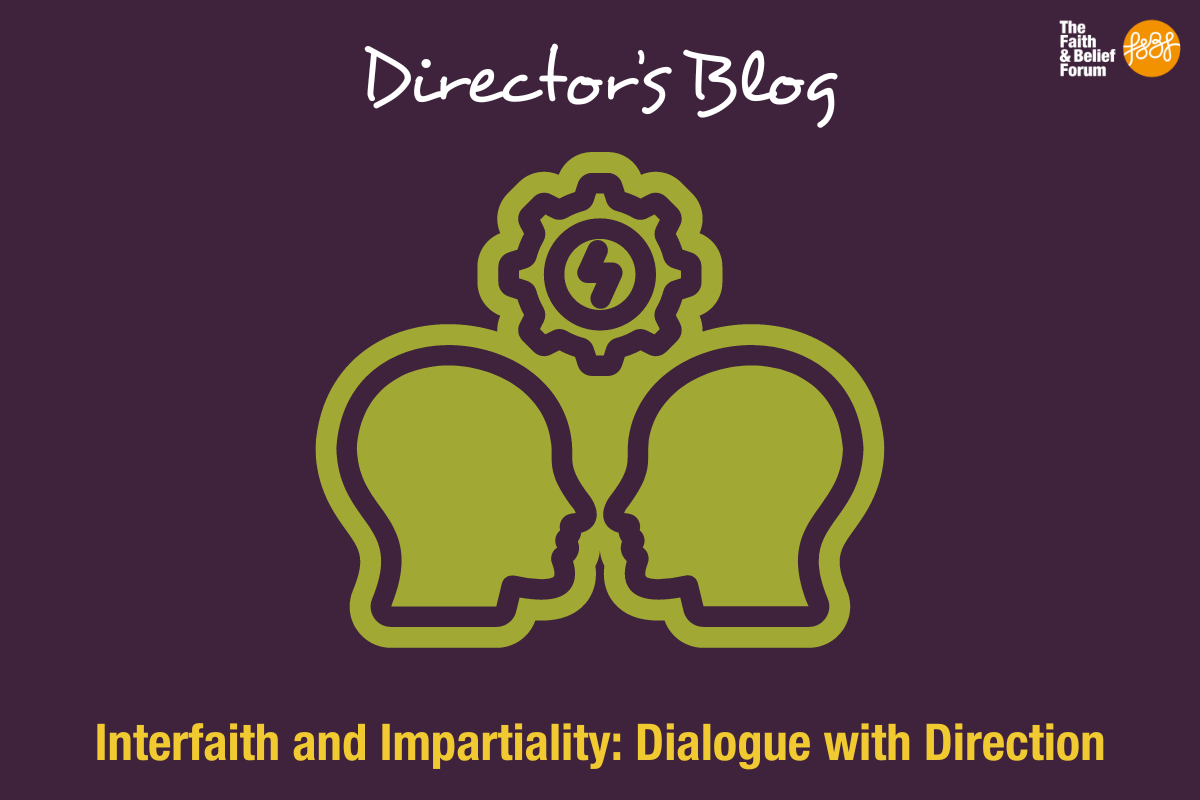
Challenging Faith Based Hate: True Stories
16 / 02 / 24
Menu

18 / 10 / 18
Josh Cass, F&BF Development and Fundraising Manager
At the Faith & Belief Forum the idea of intersectionality of identity is something which is central to the work that we do. With that said though, most of the work that I do is desk based, bashing out words that describe the work that others deliver without actually getting too involved myself. I know that this is not an ideal dynamic for me, it would be much better to have a more authentic feel for the work, but we have our targets and I have a particular role in achieving those targets.
F&BF is a special place; as a team we spend a great deal of time reflecting, individually and collectively, on the questions that we are trying to explore through our programmes. Questions relating to identity, and the intersection between various identity markers – faith, gender, sexuality, ethnicity. These discussions take place all the time and everywhere; in programme development meetings, in 1-to-1’s, over lunch and coffee, everywhere. It is hardly surprising then that (even) the Development and Fundraising Manager finds time to think about those questions too!
In recent months I have found myself in spaces where I have caught myself thinking about those intersections and felt uncomfortable and troubled.
I am willing to believe that on those occasions that I am thinking of, that people have been acting in good faith, but that does not disguise the fact that problems exist, and that there are dynamics at play which need to be addressed if interfaith activities are to achieve their potential for transforming interpersonal relations and society at large. Let me give an example.
When I was asked recently, in an interfaith space, “What am I?”, I replied to slightly confused looks, “I’m the Faith & Belief Forum’s Development and Fundraising Manager”. Having seemingly given the “wrong” answer I said, “I’m Jewish” which clearly satisfied those I was talking to. There then followed a conversation that touched on a range of issues from taking risks in interfaith programming, through to questions of leadership and representation. I found the whole dynamic deeply unsettling and troubling.
As I present as a man, and white, and as I wear a wedding band, people might assume, rightly as it turns out, that I am heterosexual, then there are a whole set of preconceptions and ideas that others might attach to me based on those multiple identities. In this context, it was my Jewish-ness which legitimated my presence in that room, not my over 10 years of experience designing and delivering interfaith and faith sensitive interventions. I might not have found the experience so disappointing were it not for the fact that at times the conversation had been about representation and yet here we were seemingly, collectively, blind to notions of what should or shouldn’t qualify someone to be perceived as a leader within interfaith activities.
As I said, I do not believe that those involved were acting in anything other than good faith, but is that good enough?
Black History Month is an opportunity to put front and centre the contributions made by people of colour, both in the here and now and historically. It is a chance to celebrate that contribution and for those of us who are not, to learn more about Black experiences and cultures. But it might also be an opportunity for some critical self-reflection too. It could also be an opportunity to think about what each and everyone of us are doing to intentionally consider questions of representation, experience, race in the decisions that we make in our personal and professional lives. It seems to me that this month is an opportunity for radical reflection on what my work and world could look like if I created spaces and time to listen to voices I might not normally hear. Within the interfaith sector and particularly in an organization like the Faith & Belief Forum where intersections rule, it has felt like the race and faith intersection has been one which has not received nearly enough attention. One could also ask the extent to which those within the sector have actively and intentionally sought to explore that intersection.
And that is why I am so excited that colleagues at F&BF took the initiative to begin to challenge the organization to think in that way. The Race and Faith Working Group, which has now been established for nearly a year, was initiated by a group of colleagues (particular mention must go to Ana Co) who wanted the organization to more intentionally explore this intersection. The Encountering Faith & Belief panel that they are delivering later this month is just one way in which they are beginning to transform our practices. It makes me proud that we have such a group and that the members of the group, voluntarily, give up their time to think about how we more intentionally explore this intersection in the work of the organization; so to all the group members – thank you from me, from the rest of the team and from our extended family too! Its brilliant that you are helping us to visibly engage with this critically important issue.
Anyway, if you have got this far in the blog, I hope you have enjoyed reading this, I hope that you agree, I hope that you can attend the event, and if you can’t that you check out all the social media which will go out around it. And I hope that, collaboratively, we can find a way to continue to challenge our understanding of what interfaith is, and push ideas of inclusion even further.

16 / 02 / 24

15 / 02 / 24

16 / 01 / 24